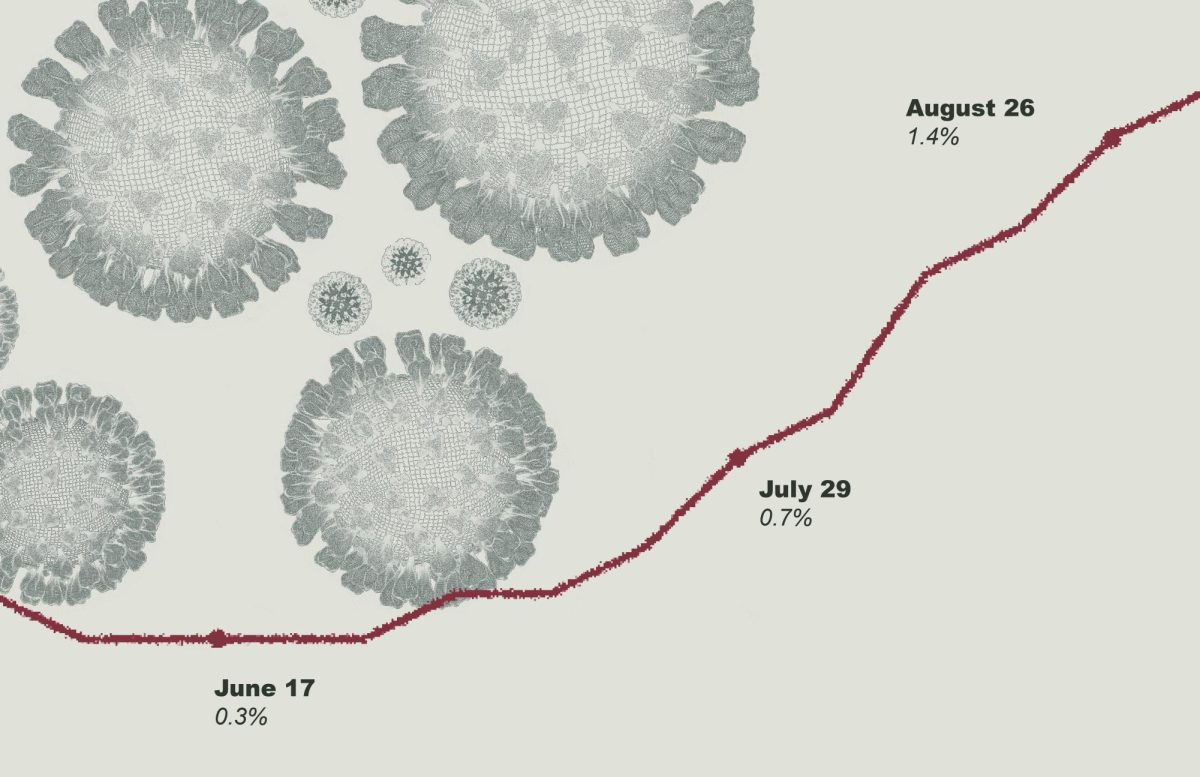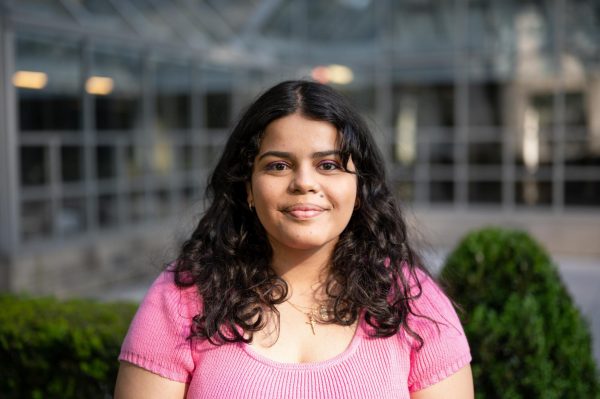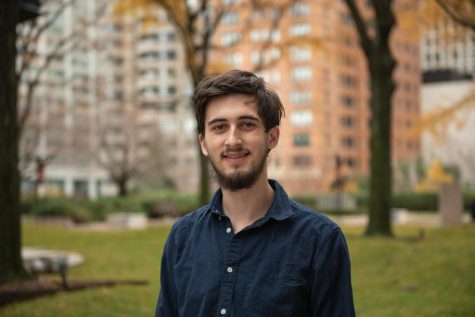Since July, a steady uptick in COVID-19 cases and hospitalizations has been reported in data from the New York Department of Health and the Centers for Disease Control and Prevention (CDC). The university’s COVID-19 policy has not changed since May 15 following the university-wide email from University President Tania Tetlow on March 20 announcing that faculty, staff and students, as well as visitors are no longer required to be vaccinated against COVID-19 upon their entry to the university’s campuses.
According to The New York Times’ updated COVID-19 tracker, daily hospitalizations have increased 24% within the past two weeks as of Sept. 12 with an average of 4,304 admissions per 100,000 people on Sept. 2. The New York Times also reported that 69% of the U.S. population has received their primary vaccination series and 17% has received their bivalent booster dose.
The CDC detected a new subvariant of COVID-19 known as BA.2.86, or pirola, on Aug. 23. The new subvariant is currently being monitored by the World Health Organization (WHO) due to the large mutations that it carries and by the CDC to investigate its multiple genetic differences from previous versions of SARS-CoV-2.
University COVID-19 Policy: The COVID-19 policy on campus has not changed since University President Tania Tetlow’s March 20 announcement noted that Fordham would cease to require vaccination against COVID-19 effective May 15.
Trend of Rising Cases: Following a decline in cases at the beginning of the year, COVID-19 cases, hospitalizations and deaths have been on a steady uptick since July.
New Subvariant Detected: The CDC detected BA.2.86, or pirola, a new subvariant of SARS-COV-2 on Aug. 23.
New Boosters Available: The FDA approved a new round of boosters for the 2023-24 year, and the CDC recommends all Americans 6 months and older to be updated on their COVID-19 vaccination doses.
Although there is concern among health experts regarding BA.2.86 and its number of mutations, NBC News reported that experts do not believe the new variant is correlated with the uptick in cases as it remains rare and has not spread throughout the U.S.
Anecia Henry, Graduate School of Social Service (GSS) ’25 and a lifelong resident of New York, said that she has seen coverage on the rise of cases after graduating from Princeton University this past spring and returning home for the summer. She noted that both her mother and older sister are healthcare professionals so she had a “direct leg up.”
In terms of whether or not the spike in cases has affected her routine, Henry shared that she began masking in her classes and on the train but generally does not if she is outside or in isolation. She added that she tested positive for COVID-19 a day before new student orientation for GSS and that it was “very distressing and upsetting.”
Experts do not believe the new variant is correlated with the uptick in cases as it remains rare and has not spread throughout the U.S.
“I’m trying to find the appropriate balance for me given that so many people around me are not masking and so many people have sort of returned back to going out and living their lives,” she said. “I definitely want to be a part of that but I am trying to navigate what feels comfortable for me and for now, it’s definitely trying to wear a mask more often at least as cases are still rising because I definitely do not want to be sick again.”
Disha Agarwal, Gabelli Graduate School of Business ’24, said that she was aware of the uptick in cases as she had to prepare to move to the U.S. from India for the start of the semester. She shared that she was concerned about anything arising that would prevent her from traveling and believes that “thankfully,” COVID-19 has not been taken as seriously as it was two to three years ago.
“Now that we have all gone through it and we have all had vaccines and booster doses, I feel why don’t we look at it just like a normal cold or flu?” Agarwal asked.
She also shared that although she received her booster to be on the safe side and believes that everyone should take the necessary precautions to protect themselves, she does not see the “hype for it anymore.”
Agarwal has not made adjustments to her routine and hopes that people quarantine themselves at home and are not moving out should they test positive for COVID-19.
In regard to the university’s lift of its COVID-19 vaccination mandate, Henry noted that “institutions are interesting and odd.”
“I’m trying to find the appropriate balance for me given that so many people around me are not masking and so many people have sort of returned back to going out and living their lives,” Anesia Henry, GSAS ’25
“I think that there should definitely be a greater encouragement and push for people to err on the side of caution and protection rather than sort of drop all precaution and regulation until a spike happens,” she said. “By that point, it is already too late.”
Agarwal also noted that the university should enforce isolation policies for students who test positive for COVID-19 and provide places in residential halls for students to quarantine.
Marco Valera, vice president for administration and former COVID-19 coordinator, said that the university will be guided by local and state health authorities, as well as health professionals, similar to how it operated during the pandemic phase of COVID-19. He added that with preventative treatments available to mitigate COVID-19, “we should see fewer cases.”
“Though the pandemic is largely behind us, the danger is not over. Fordham will remain alert and responsive to public health guidance, and we ask that members of our community continue to protect each other with respect and empathy.” Marco Valera, vice president for administration
In an email sent to members of the Fordham community on Aug. 31, Valera outlined health precautions for the fall semester as well as recommendations to student, faculty and staff. He noted that the university will be closely monitoring any reported cases of COVID-19, the flu and respiratory syncytial virus (RSV), as the beginning of the semester marks an “exciting and intensely social time of the year.”
According to Valera, the university made the decision to lift its vaccine mandate on May 15 as “new variants of the virus greatly reduced the effectiveness of vaccines to reduce the spread of disease.” He countered that vaccines provide “meaningful levels of protection” for individuals and added that the university strongly recommends everyone to receive this year’s updated COVID-19, flu and RSV vaccines, as well as observe the normal precautions for respiratory illness.
“Though the pandemic is largely behind us, the danger is not over,” he said. “Fordham will remain alert and responsive to public health guidance, and we ask that members of our community continue to protect each other with respect and empathy.”
Despite rising cases, the university will not implement any COVID-19 safety or precautionary measures.
Bob Howe, assistant vice president of communications, noted that without mandatory reporting in place at Fordham, “there’s no way to know exactly how many cases we have on campus.” He shared that as of Sept. 11, University Health Services is not seeing a larger spike in cases.
Maureen Keown, director of University Health Services (UHS), said that UHS is continuing to monitor COVID-19 as well as information from the New York City Department of Health. She added that UHS will have testing available for symptomatic students in its office and students are able to make an appointment at UHS for their tests.
According to both Keown and Valera, the university has updated its COVID-19 guidelines to reflect current recommendations from the CDC and the American College Health Association. The guidelines noted that the WHO no longer classified COVID-19 as a pandemic as of May 5 and that UHS will continue to monitor COVID-19 variants and adjust its recommendations accordingly.
According to Yale Medicine, the clinical practice for the Yale School of Medicine, an interview with Scott Roberts, infectious diseases expert at Yale Medicine, said that because BA.2.86 has more than 30 variants, the high number of mutations it has is notable. He explained that the BA.2.86 variant is a newly designated subvariant of the omicron sub-variant of SARS-CoV-2 and was first detected in late July in Denmark and appeared in the U.S. in August.
Roberts highlighted that due to the number of mutations BA.2.86 has, it is difficult to compare it to previous mutations of SARS-CoV-2 and understand whether or not it is able to bypass the body’s immune defense systems from natural infection or vaccination.
In the CDC’s Sept. 8 update on the SARS-CoV-2 BA.2.86 subvariant, the public health agency is anticipating its updated COVID-19 vaccine for 2023-24 to be made available in mid-September. According to The New York Times, the Food and Drug Administration approved a new round of COVID-19 boosters on Sept. 11, which will arrive alongside the seasonal flu vaccine and vaccines to protect against RSV.



